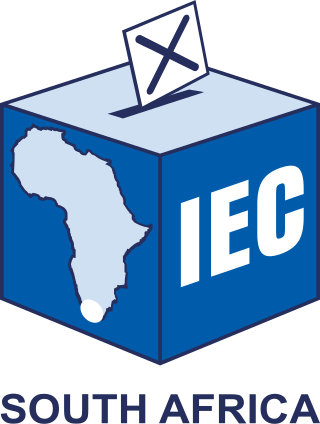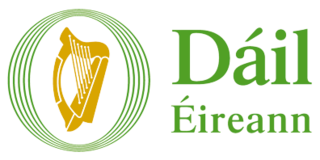Related Research Articles

Botswana is a parliamentary republic in which the President of Botswana is both head of state and head of government. The nation's politics are based heavily on British parliamentary politics and on traditional Batswana chiefdom. The legislature is made up of the unicameral National Assembly and the advisory body of tribal chiefs, the Ntlo ya Dikgosi. The National Assembly chooses the president, but once in office the president has significant authority over the legislature with only limited separation of powers. The Botswana Democratic Party (BDP) rules as a dominant party; while elections are considered free and fair by observers, the BDP has controlled the National Assembly since independence. Political opposition often exists between factions in the BDP rather than through separate parties, though several opposition parties exist and regularly hold a small number of seats in the National Assembly.

The Constitution of South Africa is the supreme law of the Republic of South Africa. It provides the legal foundation for the existence of the republic, it sets out the rights and duties of its citizens, and defines the structure of the Government. The current constitution, the country's fifth, was drawn up by the Parliament elected in 1994 in the South African general election, 1994. It was promulgated by President Nelson Mandela on 18 December 1996 and came into effect on 4 February 1997, replacing the Interim Constitution of 1993. The first constitution was enacted by the South Africa Act 1909, the longest-lasting to date. Since 1961, the constitutions have promulgated a republican form of government.
The Seventh Amendment of the Constitution Act 1979 is an amendment to the Constitution of Ireland that provides that the procedure for the election of six members of the Senate in the university constituencies could be altered by law. It was approved by referendum on 5 July 1979 and signed into law on 3 August of the same year.
The Ninth Amendment of the Constitution Act 1984 is an amendment to the Constitution of Ireland that allowed for the extension of the right to vote in elections to Dáil Éireann to non-Irish citizens. It was approved by referendum on 14 June 1984, the same day as the European Parliament election, and signed into law on 2 August of the same year.
The Twentieth Amendment of the Constitution Act 2001 is an amendment to the Constitution of Ireland which provided constitutional recognition of local government and required that local government elections occur at least once in every five years. It was approved by referendum on 11 June 1999 and signed into law on 23 June of the same year. The referendum was held the same day as the local and European Parliament elections.
Amendments to the Constitution of Ireland are only possible by way of referendum. A proposal to amend the Constitution of Ireland must be initiated as a bill in Dáil Éireann, be passed by both Houses of the Oireachtas (parliament), then submitted to a referendum, and finally signed into law by the president of Ireland. Since the constitution entered into force on 29 December 1937, there have been 32 amendments to the constitution.
Regular elections in Croatia are mandated by the Constitution and legislation enacted by Parliament. The presidency, Parliament, county prefects and assemblies, city and town mayors, and city and municipal councils are all elective offices. Since 1990, seven presidential elections have been held. During the same period, ten parliamentary elections were also held. In addition, there were nine nationwide local elections. Croatia has also held three elections to elect members of the European Parliament following its accession to the EU on 1 July 2013.
In Ireland, direct elections by universal suffrage are used for the President, the ceremonial head of state; for Dáil Éireann, the house of representatives of the Oireachtas or parliament; for the European Parliament; and for local government. All elections use proportional representation by means of the single transferable vote (PR-STV) in constituencies returning three or more members, except that the presidential election and by-elections use the single-winner analogue of STV, elsewhere called instant-runoff voting or the alternative vote. Members of Seanad Éireann, the second house of the Oireachtas, are partly nominated, partly indirectly elected, and partly elected by graduates of particular universities.

Elections in Barbados are held to choose members to fill elective offices in the House of Assembly. Elections are held on Election Day. These general elections do not have fixed dates, but must be called within five years of the opening of parliament following the last election. A former minister of the DLP, Warwick Franklin summed up the general elections process in Barbados as saying it is really just, "30 by-elections on the same day."

The Zimbabwe government consists of an elected head of state, the president, and a legislature. The presidential term lasts for 5 years, and is elected by majority, with a second round if no candidate receives a majority in the first round. The Parliament is bicameral, consisting of the House of Assembly and Senate. Following the 2013 constitution, the House of Assembly has 270 members. 210 are elected for five-year terms by single-member constituencies. Furthermore, the constitution specifies that for the two first parliaments, there are 60 additional seats reserved for women, 6 seats per province, which are filled based on the votes for in the single-member constituencies, using party-list proportional representation, distributed using the largest remainder method and the hare quota. The Senate has 80 members: 60 are elected for five-year terms in 6-member constituencies representing one of the 10 provinces, elected based on the votes in the lower house election, using party-list proportional representation, distributed using the hare quota. Additionally the senate consists of 2 seats for each non-metropolitan district of Zimbabwe elected by each provincial assembly of chiefs using SNTV, 1 seat each for the president and deputy president of the National Council of Chiefs and 1 male and 1 female seat for people with disabilities elected on separate ballots using FPTP by an electoral college designated by the National Disability Board.

Elections in Portugal are free, fair, and regularly held, in accordance with election law.

The Senate of Zimbabwe is the upper of the two chambers in Zimbabwe's Parliament. It existed from independence in 1980 until 1989, and was re-introduced in November 2005. The other chamber of Parliament is the National Assembly.

The Third Amendment of the Constitution Bill 1958 was a proposal to amend the Constitution of Ireland to alter the electoral system from proportional representation under the single transferable vote (PR-STV) to first-past-the-post (FPTP). The proposal was rejected in a referendum held on 17 June 1959. This was the same date as the presidential election in which Taoiseach Éamon de Valera was elected as president.
The Fourth Amendment of the Constitution Bill 1968 was a bill to amend the Constitution of Ireland to alter the electoral system for elections to Dáil Éireann, the house of representatives of the Oireachtas, from proportional representation by means of the single transferable vote (PR-STV) to first-past-the-post (FPTP). It was one of two referendums on the elections held on 16 October 1968, the other being a proposal to allow a greater variance in representation. Both bills were rejected.
The Constituency Commission is an independent commission in Ireland which had advised on redrawing of constituency boundaries of Dáil constituencies for the election of members to Dáil Éireann and European Parliament constituencies prior to the establishment of the Electoral Commission in 2023. Each commission was established by the Minister for Housing, Planning and Local Government after the census. The Commission then submitted a non-binding report to the Oireachtas, and was dissolved. A separate but similar Local Electoral Area Boundary Committee fulfilled the same function for local electoral area boundaries of local government areas.
Redistribution is the process by which electoral districts are added, removed, or otherwise changed. Redistribution is a form of boundary delimitation that changes electoral district boundaries, usually in response to periodic census results. Redistribution is required by law or constitution at least every decade in most representative democracy systems that use first-past-the-post or similar electoral systems to prevent geographic malapportionment. The act of manipulation of electoral districts to favour a candidate or party is called gerrymandering.

The Electoral Commission of South Africa is South Africa's election management body, an independent organisation established under chapter nine of the Constitution. It conducts elections to the National Assembly, provincial legislatures and municipal councils.

The Constitution of Samoa is a written constitution which is the supreme law in Samoa. It establishes Samoa as a parliamentary republic with a Westminster system and responsible government. It outlines the structure and powers of the Samoan government's three parts: the executive, legislature, and judiciary.

Dáil Éireann is the lower house, and principal chamber, of the Oireachtas, which also includes the president of Ireland and a senate called Seanad Éireann. It consists of 160 members, each known as a Teachta Dála. TDs represent 39 constituencies and are directly elected for terms not exceeding five years, on the system of proportional representation by means of the single transferable vote (PR-STV). Its powers are similar to those of lower houses under many other bicameral parliamentary systems and it is by far the dominant branch of the Oireachtas. Subject to the limits imposed by the Constitution of Ireland, it has power to pass any law it wishes, and to nominate and remove the Taoiseach. Since 1922, it has met in Leinster House in Dublin.
The Elections Commission is a commission set up to conduct, manage, supervise, and facilitate all elections and public referendums, to ensure the proper exercise of the right to vote, and to ensure that all elections and public referendums are conducted freely and fairly, without intimidation, aggression, undue influence or corruption and to prepare, maintain, and update electoral rolls, and to make all arrangements for holding elections and public referendums.
References
- ↑ "Botswana - Independent Electoral Commission". The Electoral Commissions Forum of SADC Countries. 21 May 2024. Archived from the original on 28 September 2023. Retrieved 23 May 2024.
- 1 2 3 Lekorwe, Mogopodi H. "The Role and Status of the Independent Electoral Commission" (PDF). Journal Of African Elections. 5 (2). Gaborone, Botswana.
- ↑ Mompei, C. T. (7 October 1997). "Constitution (Amendment) Act, 1997" (PDF). Retrieved 23 May 2024.